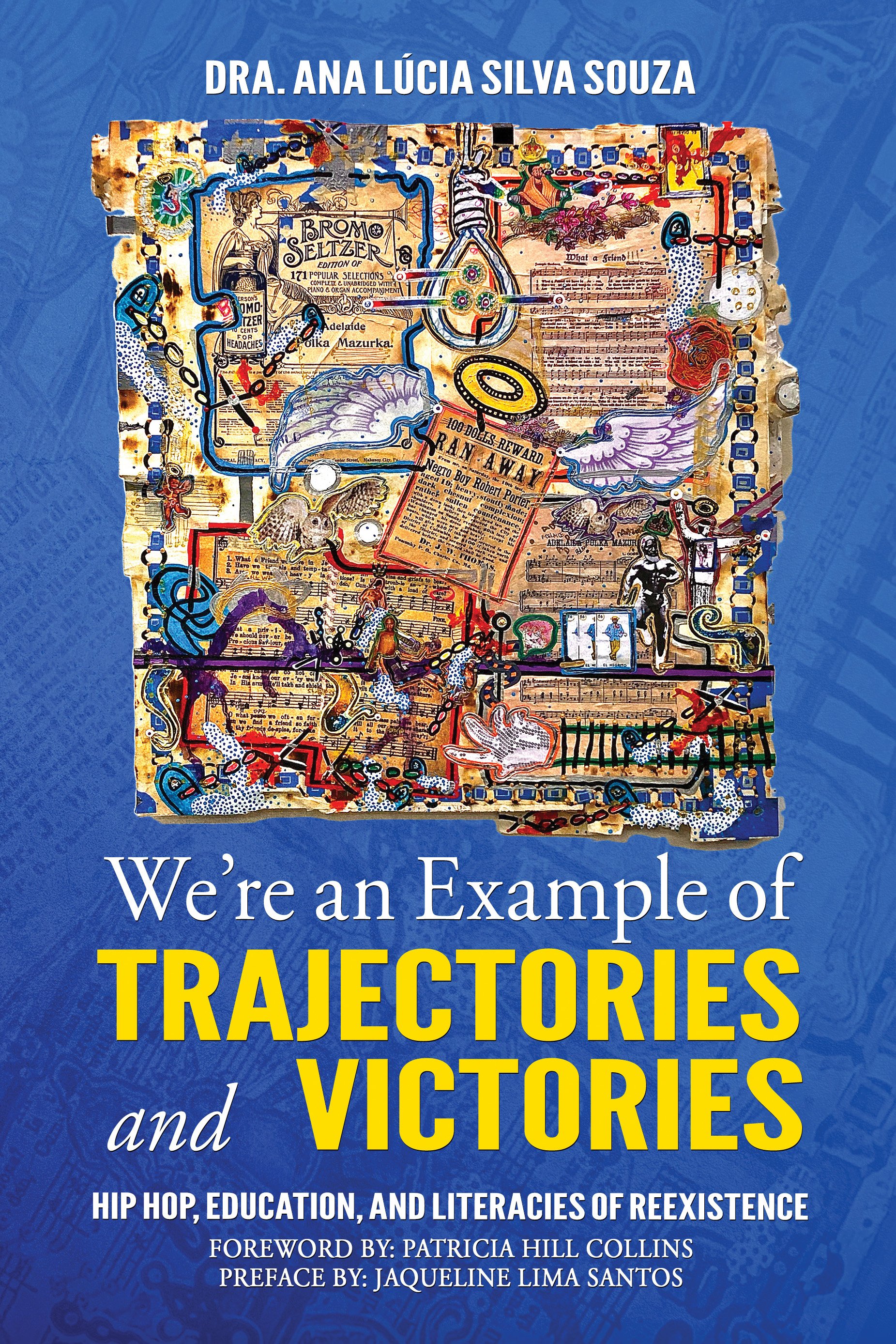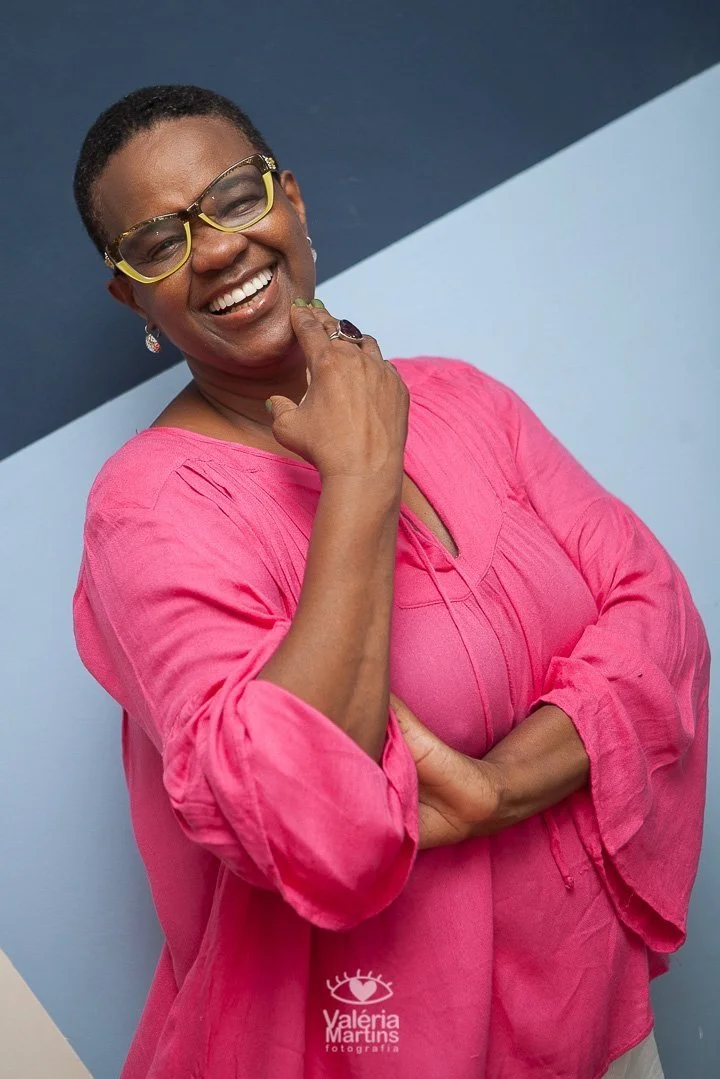Preorder your copy!
New title Available Summer 2024!!!!
Hip HOp, Education and Literacies of Reexistence
By DrA. Ana Lúcia Silva Souza
Translated by Ayala Tunde, Tanya L. Saunders and Feva Omo Iyanu
Description
In this seminal study of hip-hop literacies, Black identity formation and artivism in Brazil, Dr. Ana Lúcia Silva Souza presents the diverse literacy practices that have emerged within and in relation to Brazil’s hip-hop movement. Ana Lúcia Silva Souza demonstrates how Brazilian hip-hop literacies locate, point out, propose, act and teach others to act for social change. Hip-hop literacies not only teach youth how to resist, but also how to re-exist.
In “We’re an Example of Trajectories and Victories”: Hip Hop, Education and Literacies of Reexistence we see how a group of young people have contested “school” as a political space. They are centered as a case study of the larger social movement, lead by hip hop artivists, to rethink literacies, knowledge, identity, learning and the role of “school” in these fraught social processes. As she argues in the book, this is very much linked to larger diasporic moves happening in the U.S., Brazil and beyond.
Author Bio:
“I am a child of Brazil’s Black Social Movements. I am an activist, an educator, a reader of the world. I have a degree in political and social sciences, a master's degree in social sciences, a doctorate and a postdoctoral degree in applied linguistics. I am a professor at the Federal University of Bahia, at the Institute of Letters. I lead the research group RASURAS: Literacies of Reexistence in the Black Diaspora. I am affiliated to the Brazilian Association of Black Researchers - ABPN. I am a part of the board of directors of the NGO Ação Educativa. In my research I've been diving into uses of language, literacy, hip hop culture, youth and affirmative action. I have several publications, including the book Literacies of Reexistence – Poetry, Graffiti, Music, Dance - Hip-Hop and also Literacies in High School Ed. Parable.”
Translators
AYALA TUDE
English Teacher. Translator. Master’s student in Literature and Culture at the Federal University of Bahia – UFBA. Member and associate researcher of the group Traduzindo no Atlântico Negro [Translating in the Black Atlantic]. Responsible for international communications at Diálogos Insubmissos de Mulheres Negras. Co-founder of the English course in an afro diasporic approach @afrodiasporaconnect.
Tanya L. Saunders
Dr. Tanya L. Saunders is a sociologist interested in the ways in which the African Diaspora throughout the Americas uses the arts as a tool for social change. They have a Master of Public Policy (MPP) with a focus on International Development Policy from the Gerald R. Ford School of Public Policy and a PhD in Sociology from the University of Michigan, Arbor. They have a Bachelors of Arts in Spanish and Public Policy from St. Mary’s College of Maryland, and is currently on the graduate faculty in the School of Education at the University of São Paulo in São Paulo, Brazil. As a 2011-2012 Fulbright scholar in Brazil, Dr. Saunders began work on their current project about Black Queer Artivism in Brazil. They are fluent in English, Spanish and Portuguese, and is currently learning Yoruba. Dr. Saunders is the founder and editor-in-chief of Améfrica Press. Their book Cuban Underground Hip Hop: Black Thoughts, Black Revolution, Black Modernity (University of Texas Press, 2015), has also been translated and published in Portuguese as Modernidade negra: Hip Hop, artivismo e mudança social em Havana (Editus 2021).
FEVA OMO IYANU
Feva Omo Iyanu (M.A. Federal University of Bahia, Portuguese and English) is a translator, writer, and professor of Afro-Brazilian and African Literature, developing his research in the field of Translation Studies, Ethnic and Aphrodiasporic Studies, Afro-Brazilian Religiosity and Literature of black Afrodiasporic and African writings. Author of Sobre a Pretintura dos Olhos Negros, Feva is a scholar of Yoruba Cultures and their influence on the Brazilian diaspora. His literary productions and translational methodological processes are based on the principles of the black-African ethics of being, living and experiencing the world.





